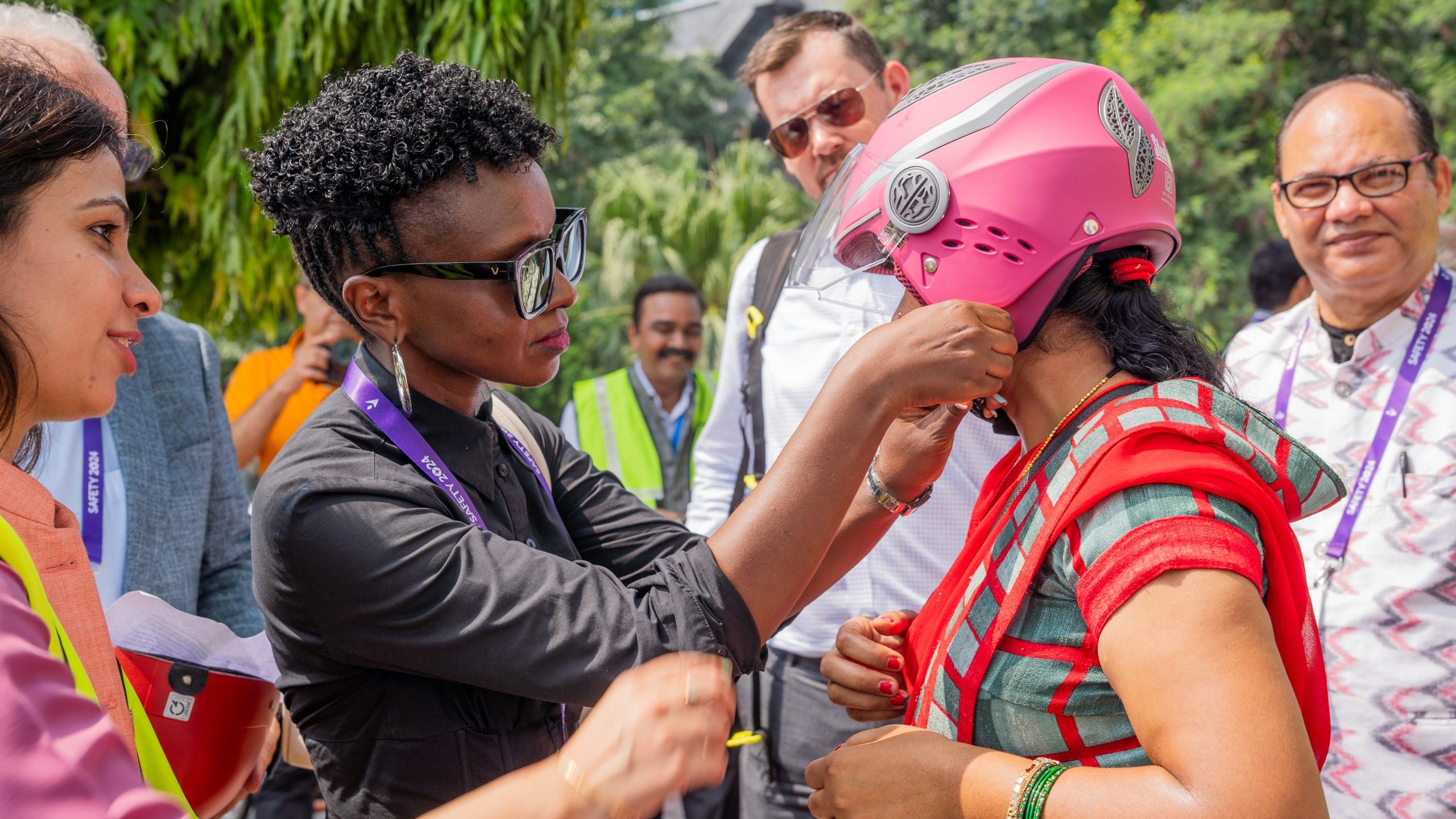
Thursday 13 February 2025
Today, the Global Alliance of NGOs for Road Safety (the Alliance) launches a new white paper Making safe helmets a reality for all. The white paper explores the challenges motorcycle riders face in choosing a safe helmet that they can be confident will protect them.
Riders rely on brands and safety certification labels to decide if a helmet is safe. However, not all helmets meet safety standards and some of these nonstandard helmets mimic safe ones using fake safety certification labels or branding. Unsafe, nonstandard helmets are widely available around the world, and it can be hard for riders to tell the difference. The white paper therefore puts forward systemic actions for governments, NGOs, UN organizations, private sector, and funders toward ensuring that only safe helmets that meet a recognized safety standard are available on the market.
The white paper findings are based on a combination of desk research, interviews with international experts and local NGOs, and community consultations with riders in five countries across three continents. Read the white paper. The white paper has been produced with support from Uber.
Aligned to the launch, the Alliance will hold a side event Helmet realities and solutions: making safe helmets a reality for all at the upcoming 4th Global Ministerial Conference on Road Safety (Ministerial Conference). The session will be held on Wednesday 19 February 2025 from 07:30-08:45 at the Palais de Congres, Marrakech, Morocco. The event is free to attend.
For the duration of the Ministerial Conference, the Alliance will have a display of nonstandard and standard helmets from around the world in its booth in the conference exhibition. Here, visitors can touch and feel the helmets to help visualize some of the challenges faced by riders seeking to identify a safe helmet. Global experts and NGOs will engage in short head-to-head sessions to examine some of the helmets on display and explore issues in the white paper.
Lotte Brondum, the Alliance’s Executive Director, said, “Motorcycle usage is increasing around the world and safe helmets that meet a recognized standard are essential to making their journeys safe. Governments have primary responsibility for ensuring that every helmet in every country is a safe helmet but NGOs, private sector, UN agencies, and funders must also play their part. We are letting people down by allowing unsafe helmets into the market. We are grateful for Uber’s support in building the tools to help local NGOs advocate more effectively and specifically for safe helmets.”
Kristin Smith, Head of Global Road Safety Policy, Uber, said, “At Uber, we’re committed to being a leader in road safety. Safe helmets are a vital piece of protective gear for our drivers and riders worldwide, as well as the communities we serve. Extensive global research confirms that quality helmets save lives. That’s why we’re proud to support the Alliance’s advocacy in removing unsafe helmets from circulation—ensuring every rider can trust the protection they wear.”
About the white paper
The white paper puts forward six key messages:
For more information, contact Liz Man, Director of Communications, Global Alliance of NGOs for Road Safety liz.man@roadsafetyngos.org +44 7747 600178